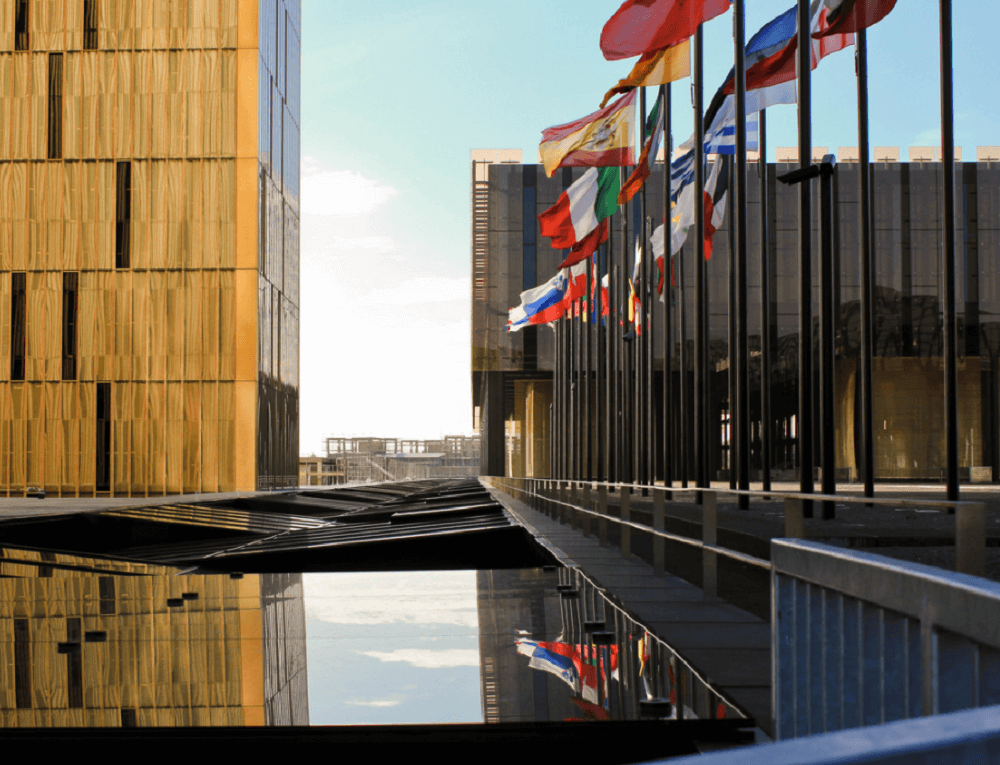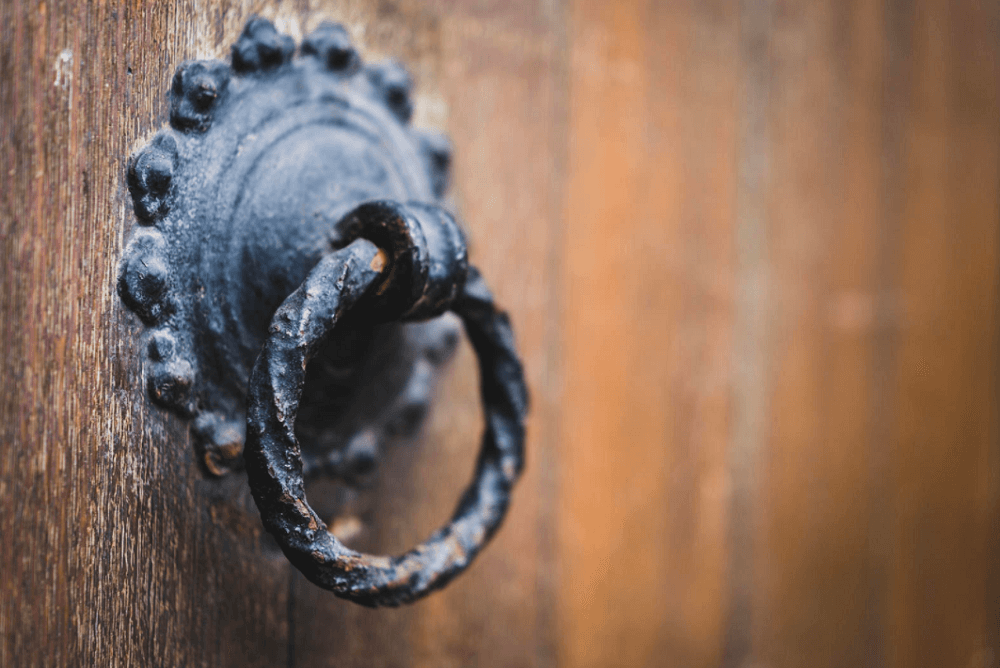The “right to oblivion” debate: should search engines be considered journalism?
In the High Court of London, a case related to the “ right to oblivion ”, adopted in 2014, was examined for several months . Two businessmen who had problems with the law in the past demanded that Google remove information that had been outdated for several decades from search results. Last week, the court granted the claims, but only one of the entrepreneurs.
We’ll tell you more about the situation and why Google brought the case to court. / photo Katarina Dzurekova CC

The right to oblivion was accepted by the European Court in 2014. It requires Google to remove information about European citizens from the search results upon their request if it is “false, inaccurate or irrelevant”. In the same ruling, the court allowed Google to independently decide what could be “deleted” and what was of interest to the public.
From 2014 to 2017, Google processed about 2.5 million requests to remove information from search results. Eight percent of them related to information related to criminal activity. Each request was considered individually, as often people used the system for personal gain.
Once, a user charged with fraud askedremove from the issue 300 articles related to his criminal record. He submitted documents recognizing his innocence by the court, and the relevant links were removed from the extradition. However, it later turned out that the documents were fake. Google links returned.
For several months , hearings have been ongoing on the case of two businessmen [the media do not disclose their names and designate them as NT1 and NT2] who want to remove information about their past from Google’s search results. Cases are heard in the High Court of Justice.
Businessmen were convicted in the 1990s for committing white-collar crimes . They claim that they have served their sentences, and therefore have the right to oblivion.
Representative of businessman NT1, Hugh Tomlinson (Hugh Tomlinson) said in court that the availability of information about past crimes in the search results “upset” the plaintiff and brought him “moral suffering”. He noted that many make mistakes in their youth and the constant reminder of them to other people negatively affects relations with the public.
Google does not agree with such statements. Antony White, a spokeswoman for the company , said during a hearing in one of the cases that the right to oblivion does not allow you to rewrite history. He notedthat the nature of the crimes in the present case concerns professional activity, and not personal life. The history of offenses to this day is of interest to potential clients and partners of a businessman, given that he continues to work in the same field.
A Google spokesman noted that the plaintiff, using a series of publications on social networks, created the image of a respected businessman, and if his right to oblivion is realized, the false picture will only strengthen.
The company also claims that their decision [not to delete the information about the claimant] falls under the amendment to journalism, designated in the Act on Data Protection (Data Protection Act), which authorizes the use of personal data for journalistic purposes.
According to Google, a broad definition of journalism includes the work of a search engine. Representatives of the IT giant, according to documents presented in court, said: "The process of displaying search results exists in order to provide users with access to the content of various publications and the media, including information, opinions and ideas."

/ photo by Paul Hudson CC
Information Commissioner Elizabeth Denham criticized the position of the IT corporation. In her opinion, journalism involves the human editing process - machine algorithms for Google services do not fall into this category. She noted that if the court takes the side of the IT giant, the company will have ample opportunities to control content.
Denham’s position is shared by The Register reporter Gateth Corfield, who reported on the scene. “Google made a lot of efforts to convince everyone that they did not edit the results of the issue, but now they say that they are engaged in journalism,” Corfield says.
However, not everyone criticizes Google. Paul Chadwick, EditorThe Guardian, believes that the “right to oblivion” itself requires improvements as it has many “misleading” holes. Therefore, in his opinion, legislators should focus not on regulating the limits of a person’s control over information about him on the network, but on designating the boundaries and areas of application of such laws.
The court ruled in both cases last week, but these are two different decisions. Regarding NT2, Judge Mark Warby ordered Google to remove the information from the issue, as it is not related to the current business of the plaintiff. Plus, Warby took into account the remorse of NT2.
However, in the case of NT1, the decision was the exact opposite. The judge noted that NT1 continued to mislead the court during the trial and showed no remorse for the crime he committed. Moreover, since the plaintiff continued to work in the same field, information about his past is important for those who will cooperate with him in the future.
As the representatives of the Open Rights Group, which deals with the observance of human rights and freedoms in the digital world, said such a decision creates a certain precedent, which will have far-reaching consequences. In the future, the court will have to weigh and evaluate the impact of the deleted information on the public. But what this will lead to is unclear.
Google noted that they would respect the court order and comply with the order.
PS Related posts from the First Corporate IaaS Blog:
We’ll tell you more about the situation and why Google brought the case to court. / photo Katarina Dzurekova CC

About the right to oblivion
The right to oblivion was accepted by the European Court in 2014. It requires Google to remove information about European citizens from the search results upon their request if it is “false, inaccurate or irrelevant”. In the same ruling, the court allowed Google to independently decide what could be “deleted” and what was of interest to the public.
From 2014 to 2017, Google processed about 2.5 million requests to remove information from search results. Eight percent of them related to information related to criminal activity. Each request was considered individually, as often people used the system for personal gain.
Once, a user charged with fraud askedremove from the issue 300 articles related to his criminal record. He submitted documents recognizing his innocence by the court, and the relevant links were removed from the extradition. However, it later turned out that the documents were fake. Google links returned.
The case of two businessmen
For several months , hearings have been ongoing on the case of two businessmen [the media do not disclose their names and designate them as NT1 and NT2] who want to remove information about their past from Google’s search results. Cases are heard in the High Court of Justice.
Businessmen were convicted in the 1990s for committing white-collar crimes . They claim that they have served their sentences, and therefore have the right to oblivion.
Representative of businessman NT1, Hugh Tomlinson (Hugh Tomlinson) said in court that the availability of information about past crimes in the search results “upset” the plaintiff and brought him “moral suffering”. He noted that many make mistakes in their youth and the constant reminder of them to other people negatively affects relations with the public.
Google does not agree with such statements. Antony White, a spokeswoman for the company , said during a hearing in one of the cases that the right to oblivion does not allow you to rewrite history. He notedthat the nature of the crimes in the present case concerns professional activity, and not personal life. The history of offenses to this day is of interest to potential clients and partners of a businessman, given that he continues to work in the same field.
A Google spokesman noted that the plaintiff, using a series of publications on social networks, created the image of a respected businessman, and if his right to oblivion is realized, the false picture will only strengthen.
How Google Explains Its Position
The company also claims that their decision [not to delete the information about the claimant] falls under the amendment to journalism, designated in the Act on Data Protection (Data Protection Act), which authorizes the use of personal data for journalistic purposes.
According to Google, a broad definition of journalism includes the work of a search engine. Representatives of the IT giant, according to documents presented in court, said: "The process of displaying search results exists in order to provide users with access to the content of various publications and the media, including information, opinions and ideas."

/ photo by Paul Hudson CC
What does the community think?
Information Commissioner Elizabeth Denham criticized the position of the IT corporation. In her opinion, journalism involves the human editing process - machine algorithms for Google services do not fall into this category. She noted that if the court takes the side of the IT giant, the company will have ample opportunities to control content.
Denham’s position is shared by The Register reporter Gateth Corfield, who reported on the scene. “Google made a lot of efforts to convince everyone that they did not edit the results of the issue, but now they say that they are engaged in journalism,” Corfield says.
However, not everyone criticizes Google. Paul Chadwick, EditorThe Guardian, believes that the “right to oblivion” itself requires improvements as it has many “misleading” holes. Therefore, in his opinion, legislators should focus not on regulating the limits of a person’s control over information about him on the network, but on designating the boundaries and areas of application of such laws.
The court's decision
The court ruled in both cases last week, but these are two different decisions. Regarding NT2, Judge Mark Warby ordered Google to remove the information from the issue, as it is not related to the current business of the plaintiff. Plus, Warby took into account the remorse of NT2.
However, in the case of NT1, the decision was the exact opposite. The judge noted that NT1 continued to mislead the court during the trial and showed no remorse for the crime he committed. Moreover, since the plaintiff continued to work in the same field, information about his past is important for those who will cooperate with him in the future.
As the representatives of the Open Rights Group, which deals with the observance of human rights and freedoms in the digital world, said such a decision creates a certain precedent, which will have far-reaching consequences. In the future, the court will have to weigh and evaluate the impact of the deleted information on the public. But what this will lead to is unclear.
Google noted that they would respect the court order and comply with the order.
PS Related posts from the First Corporate IaaS Blog:
